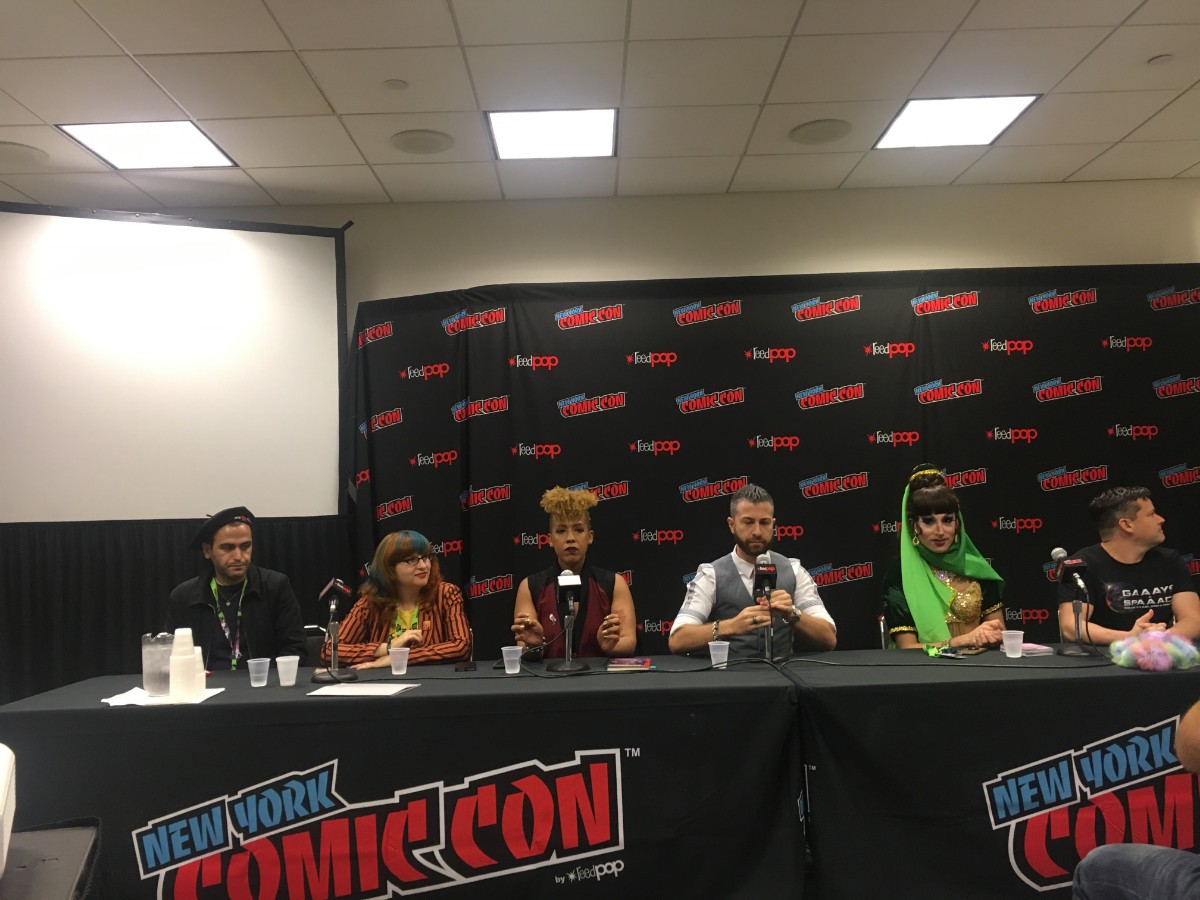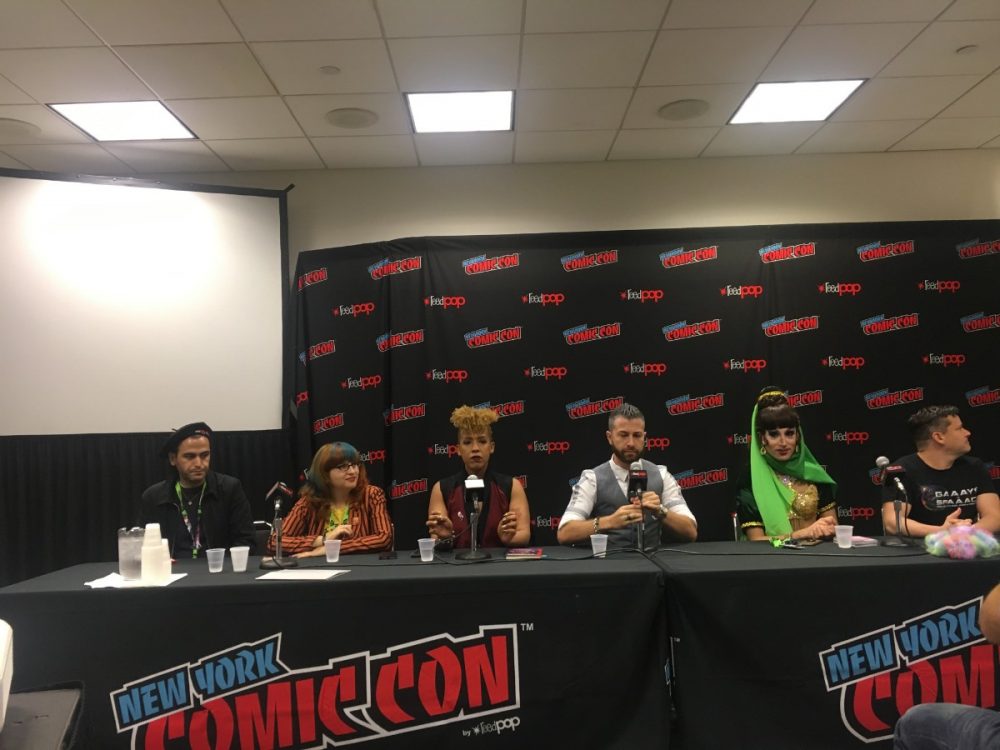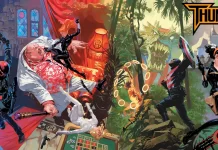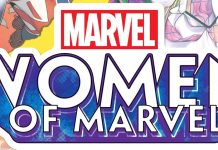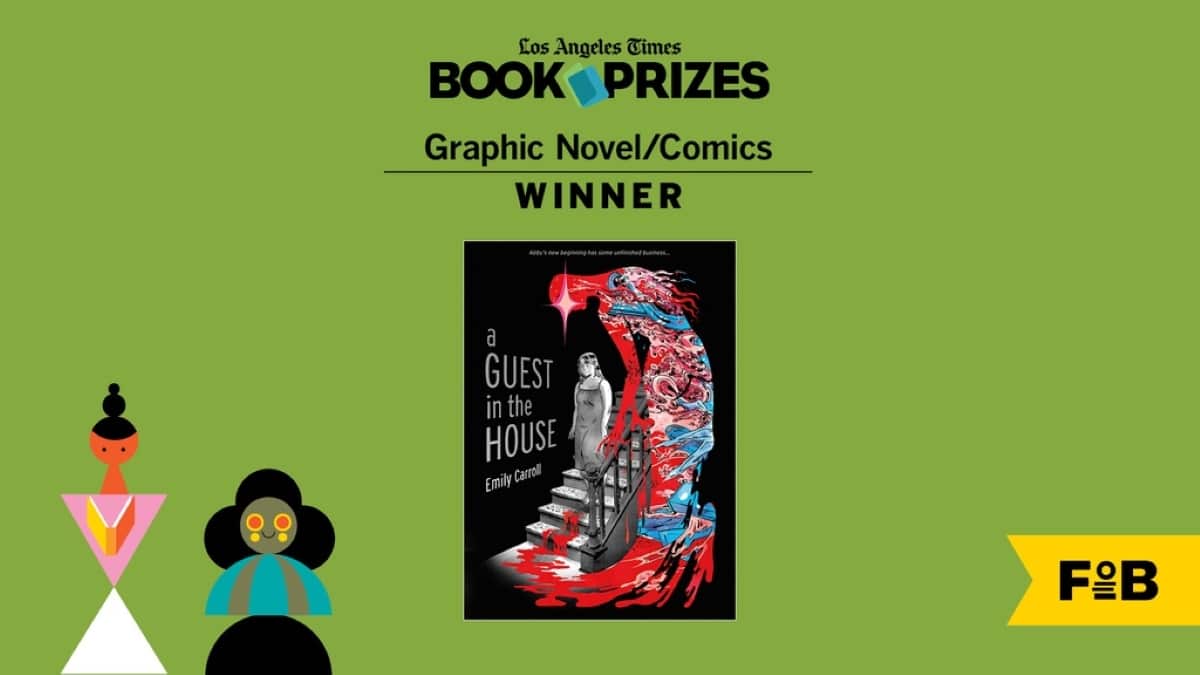By Amanda Steele
One of the many diversity-focused panels held at New York Comic Con this year was New York TimesOUT presents LGBTQ in Pop Culture hosted by the New York Times.
The panel included a wide range of LGBTQ creators and activists. They were: Dan Deevy (Gaaays in Spaace), Jackie Cox (NYC Drag Queen), Frederick F. Allen (social activist/ comedian /writer), Angelique Roche (Black Girl Nerds), Elana Levin (The Beat contributor), and Sina Grace (Writer of Marvel’s Iceman). The panel was moderated by Jude Biersdorfer.
The energy in the room was really upbeat and positive, and I was excited to be among some of my fellow queer nerds and geeks.
First off, the panellists introduced themselves, and some of them already had some pretty insightful things to say about queer people in pop culture. Jackie Cox noted that “for so long as queer people we’ve had to look beneath the surface to find ourselves represented in the media.”
While Frederick Allen talked about his activism, working with Rainbow Railroad raising money for to help gay men in Chechnya escape and find freedom and safety.
Angelique Roche discussed how important superheroes are to our society today saying that,
“Superheroes are our modern mythology. They reflect who we are, they reflect the values that we have.”
Some of the panellists talked about problems with representation of LGBTQ characters in media, nothing that while in the past subtextual representation was necessary, now it is not enough. Elana Levin said talked about the importance of textual repetition, not just sutbtextual.
One highlight of the panel was hearing Sina Grace talk about the return arc of Bobby Drake in his Iceman series, which was cancelled but then picked up again. In the first arc, Bobby comes out as a gay man and comes to own his sexuality. Grace said that the “return arc will speak a lot to myself and my own journey. The question is how can he be a great hero? The metaphor in terms of our community is how can you be a better ally.” He went on further to discuss the importance of people with privilege in the queer community to use their privilege to help others who face more oppression.
Next, the panel went onto general discussion with the moderator asking about how queer nerds can use the skills they use in fandom to help with activism.
Levin noted that fans are already doing a lot of organizing work with fan communities and have many skills such as using social media effectively that can be used in activist circles. While Allen noted that nerds can use their passion and compassion for good saying, “the skill we carry over is just caring. Caring about the world we live in and wanting to make a difference.”
The discussion then turned to Star Trek, noting the existence of gay people in space since Star Trek: Discovery has finally made canon gay characters. Cox and Deevy talked about how Star Trek in the 90s had a lot of subtextual characters, and, in conversation they’ve had with actors and creators of the show, that those involved are sorry they didn’t do more and wish they would have. Deevy noted that “it would have been more like real Star Trek” if they had had queer characters earlier on.
This panel was great to watch, and the audience was diverse and really into the discussion. It’s always a rewarding experience to hear the thoughts of queer people in the nerd community who are doing great work, both as artists and as activists.


